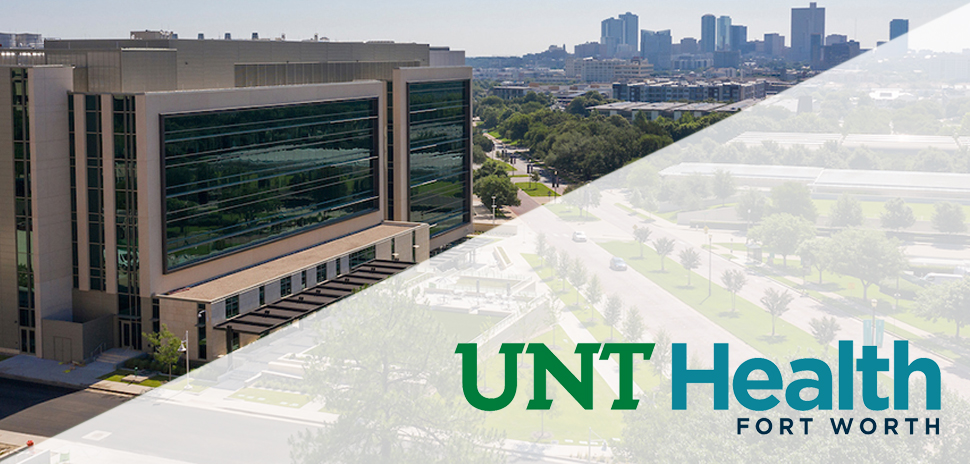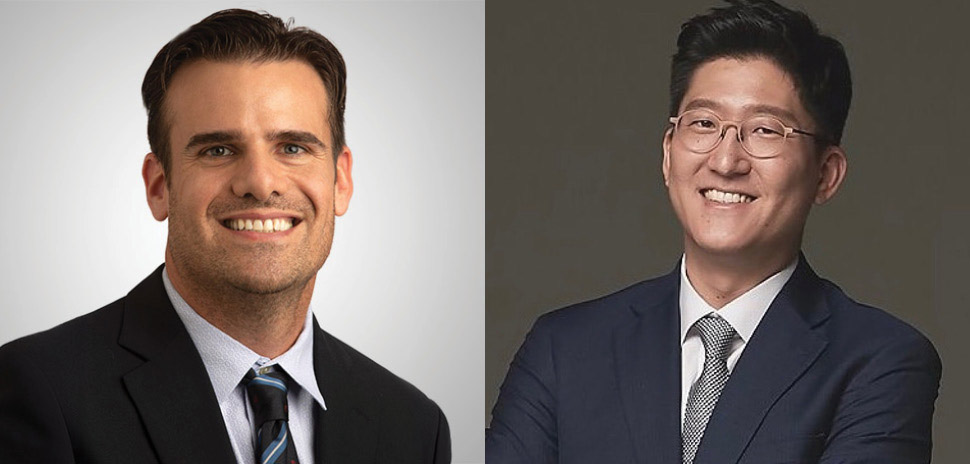
UNT Health Science Center. June 7, 2019.
One of America’s premier academic medical centers is getting a new name and logo, reflecting the strength of its university system and its mission to create “solutions for a healthier community.”
The University of North Texas Health Science Center at Fort Worth—often known as simply HSC—has rebranded as UNT Health Fort Worth.
The name change aims to highlight the center’s Fort Worth roots while showing its continued commitment to educating the next generation of health leaders, delivering hands-on care through health clinics, and advancing “world-class health research that extends far beyond Texas.”
“At UNT Health, we’re embracing both our history and our future,” Interim President Dr. Kirk A. Calhoun said in a statement. “This change represents who we’ve always been and who we will continue to be—a trusted community partner, a hub for research and learning, and a place where future and current health professionals are prepared to lead with purpose.”
Championing tech-focused innovation

Immersive simulation space at UNT Health Fort Worth’s Regional Simulation Center. [Rendering: UNT Health Fort Worth]
UNT Health at Fort Worth has made headlines for its focus on technology and innovation. In 2022, it opened its $6.75 million Regional Simulation Center, featuring “immersive simulation spaces” powered by 360-degree virtual-reality projections; 14 realistic-looking examination rooms; VR headset learning experiences; an adaptable procedural skills suite; a daily-living activities suite designed to look like a home’s interior; and assorted team and learning rooms. The center’s cutting-edge tech lets students and health care providers practice and learn new skills—including disaster rescues—in the most realistic of environments.
Also in 2022, UNT Health received a $2 million grant from Tarrant County to help emerging tech startups successfully apply for federal Small Business Innovation Research funding.
UNT Health has also been heavily involved in the Techstars Physical Health Fort Worth Accelerator, a public-private partnership that also includes the city of Fort Worth and Tarrant County. UNT HSC and Goff Capital provided up to $120,000 in seed funding to each of the 10 inaugural companies in 2022, and pledged over the past three years to make nearly $10 million in equity investments into companies going through the program.
Roots date back to 1970
UNT Health’s roots date back to 1970, when it was founded as the private Texas College of Osteopathic Medicine. The college became a state medical school in 1975 under the jurisdiction of the North Texas State University board of regents. In 1999, the center joined UNT’s campuses in Denton and Dallas to form the UNT System.
“UNT Health is a vital part of the UNT System,” UNT System Chancellor Michael R. Williams said. “This change clarifies that connection and captures the spirit of innovation, collaboration and service that drives everything we do across our campuses.”
UNT Health at Fort Worth has nearly $100 million in funded research, 1,500 students preparing for careers in health care, six colleges, and three institutes. The center said it is dedicated to advancing health through education, research, and community impact “in Texas and beyond.”
Don’t miss what’s next. Subscribe to Dallas Innovates.
Track Dallas-Fort Worth’s business and innovation landscape with our curated news in your inbox Tuesday-Thursday.
R E A D N E X T
-

Keratoconus, which causes the cornea to thin and bulge, not only impairs vision but if left untreated can lead to severe complications including blindness, HSC said.
-

North Texas has plenty to see, hear, and watch. Here are our editors’ picks. Plus, you’ll find more selections to “save the date.”
-

Combining cutting-edge research and real-world applications, the UT Dallas professor transforms public health with innovations in detection technology, including “a check engine light” for the human body. In collaboration with EnLiSense, the company she cofounded, Dr. Prasad combines chemistry with software and hardware to bring the technology to life as market-ready devices.
-
Premature babies diagnosed with bronchopulmonary dysplasia (BPD) face the risk of rehospitalization, delayed brain development, and respiratory problems throughout childhood. No FDA-approved therapies are available for BPD—which is why the new FDA designation for AyuVis’s drug candidate, AVR-48, could lead to game-changing impact.
-

MAA has long made its presence known with marquee projects across the Panther City. Now it’s put down roots with a new office on West 7th Street, adding to its offices in Dallas, Austin, Cincinnati, and Charlotte.